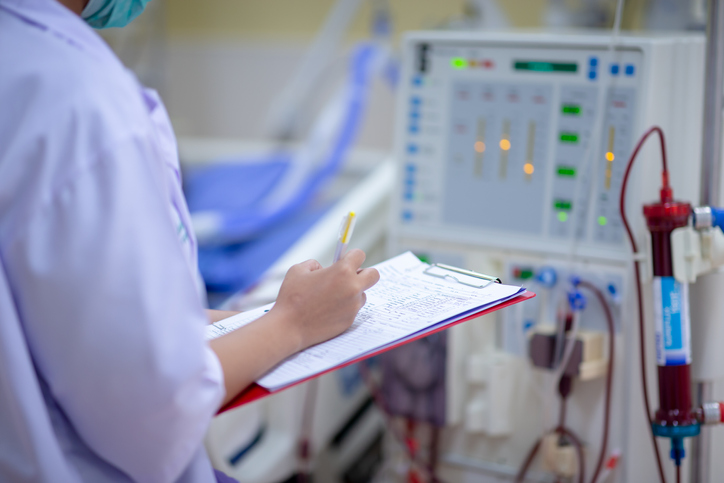
The Centers for Medicare and Medicaid Services is looking to increase at-home dialysis and kidney transplant rates for low-income patients through new incentives.
On Friday, the agency finalized payment rates for next year under the end-stage renal disease prospective payment system (ESRD PPS). It plans to pay a total of roughly $8.8 billion to 7,700 facilities for dialysis services, with a $5 increase bringing the base rate per dialysis treatment to $257.90.
CMS also updated the ESRD treatment choices model, which was implemented last year to encourage the use of home dialysis and kidney transplants for Medicare patients with ESRD. Under the final rule, healthcare providers would be incentivized to offer at-home dialysis and transplants to more low-income patients. They would get a boost if their home dialysis rate or transplant rate increases by at least 2.5% among dual-eligible or low-income subsidy recipients.
“Today’s final rule is a decisive step to ensure people with Medicare with chronic kidney disease have easy access to quality care and convenient treatment options,” CMS Administrator Chiquita Brooks-LaSure said in a news release. “Enabling dialysis providers to offer more dialysis treatment options for Medicare patients will catalyze better health outcomes, greater autonomy and better quality of life for all patients with kidney disease.”
CMS has sought to move more patients to home dialysis, but adoption has been slow, with roughly 12% of patients using home dialysis in 2016. Seeing the shift, dialysis centers have been looking to bolster their ability to provide in-home dialysis, with Fresenius acquiring NxStage Medical for $1.9 billion in 2019.
In an emailed statement, Fresenius Medical Care North America CMO Dr. Robert Kossmann said the company was now providing 15% of all treatments in a home setting and has initiatives underway to improve transplant referrals, but acknowledged that disparities remain.
“We strongly support the changes in the ETC Model, which address socioeconomic barriers to increased access to home dialysis and transplant. These changes will help us further drive and transform care to prioritize transplant and home dialysis by better recognizing that treatment choice for many patients is often tied to certain social determinants of health,” he wrote. “We are committed to addressing these challenges head on so that everyone has equal access to the support needed for successful home treatment and kidney transplantation.”
Equitable access to transplants is crucial, as patients face long wait times for kidneys in the U.S. Currently, there are more than 90,000 people on waiting lists for kidney transplants, according to the Organ Procurement and Transplantation Network.
Photo credit: saengsuriya13, Getty Images















